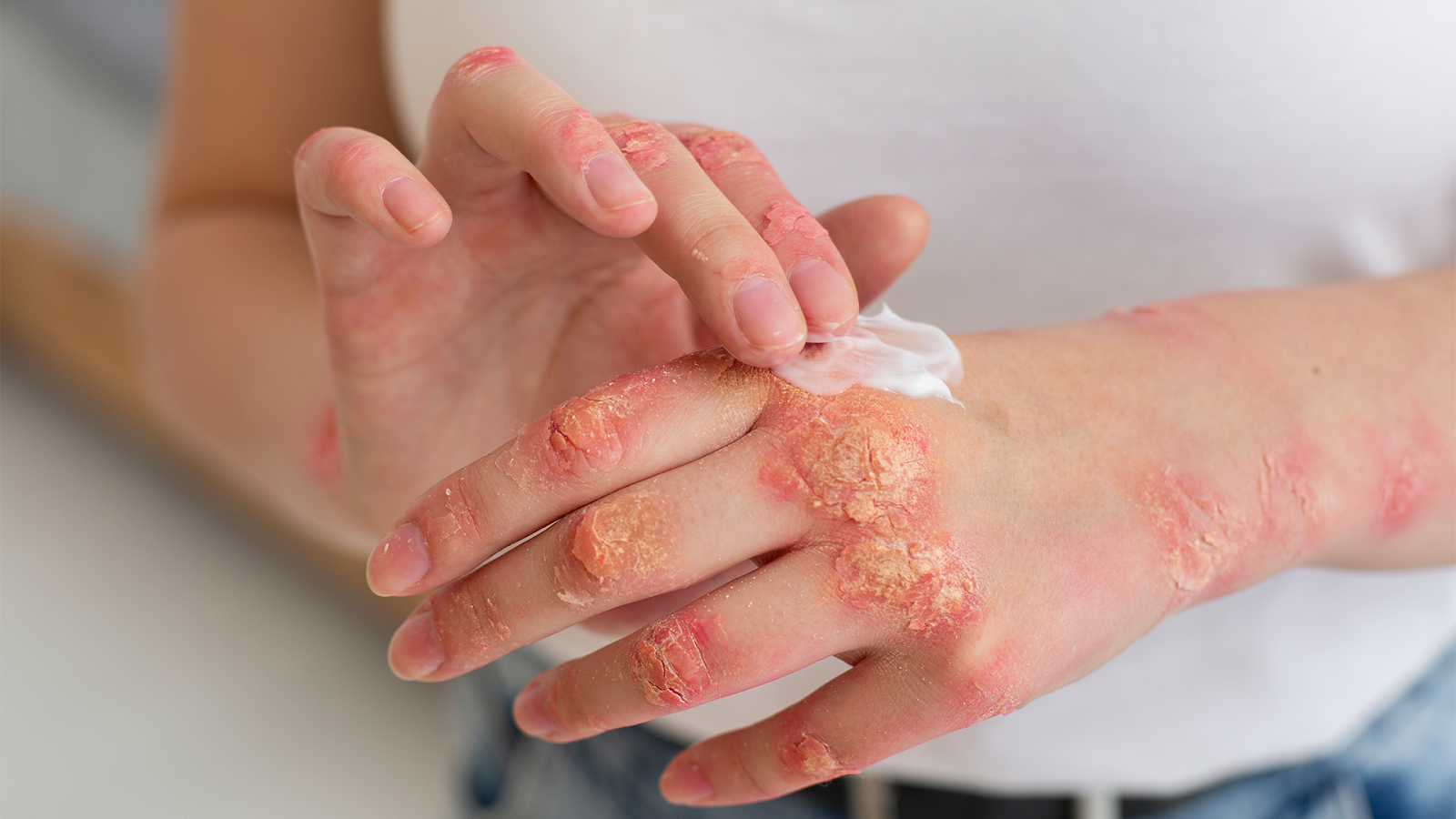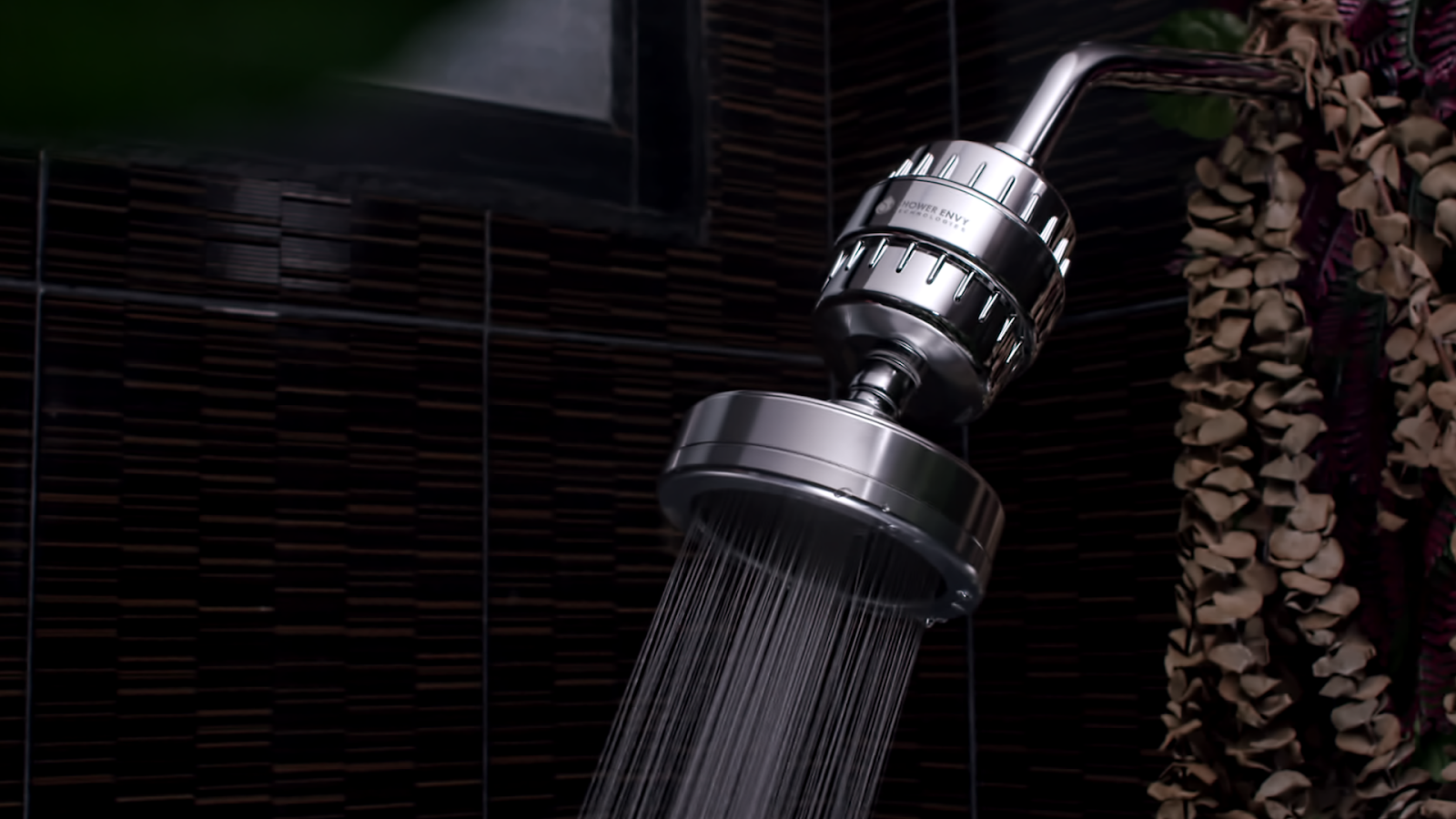
600k+ Followers

600k+ Likes

160k+ Followers
FEATURED IN





You step out of a hot shower expecting to feel refreshed and clean. But instead, your skin feels tight, dry, flaky and itchy. Your hair? Dull, frizzy and far from manageable. It’s easy to blame the weather or your shampoo, but have you ever considered that your shower water could be the real culprit?
Shower water that’s not properly filtered can carry chlorine, heavy metals and minerals that silently chip away at your skin and hair health.
If you’ve been struggling with persistent dryness, breakage, or irritation, it might be time to take a closer look at what’s flowing out of your showerhead. Let’s explore five subtle—but significant—signs you need a shower filter.
Why Your Shower Water Quality Deserves More AttentionWhy Your Shower Water Quality Deserves More Attention
We are often vigilant about the water we drink, but forget that our skin is the largest organ of the body and it absorbs what we expose it to. During a hot shower, your pores open up, making it easier for contaminants in water to enter your skin and scalp.
Unfiltered shower water can be loaded with chlorine (used in municipal water systems), heavy metals and other impurities. Over time, these elements can disrupt your natural moisture balance, cause inflammation and even accelerate aging in skin and hair.
This is why understanding chlorine shower water effects and how hard water damages hair is more important than ever.
Learn more about how chlorine impacts your skin and hair.
The Hidden Dangers Lurking in Unfiltered Shower Water
Here’s a quick breakdown of what could be in your shower water:
Chlorine – strips natural oils from skin and hair
Hard water minerals (like calcium and magnesium) – cause buildup and dryness
Heavy metals – may irritate sensitive skin
Volatile Organic Compounds (VOCs) – linked to skin irritation and respiratory issues
The impact isn’t always instant. But over weeks or months, you might start noticing the signs below—many of which are signs you need a shower filter.
Sign #1: Your Skin Feels Tight, Dry, or Itchy Post-Shower
You lather up, rinse off and apply lotion religiously—but your skin still feels dehydrated. If this sounds familiar, your water could be working against you.
Chlorine, in particular, strips away the skin’s natural oils. This leads to dryness, irritation and a sensation of tightness, especially after hot showers. And while moisturizers offer temporary relief, they don’t fix the root cause.
Filtered shower heads help by reducing chlorine levels before they reach your skin, helping maintain your skin’s natural barrier.
A filtered shower head benefits you by reducing chlorine levels before they reach your skin. It’s one of the best tools for people dealing with itchy skin after showering or looking for the best shower filter for dry skin.
Sign #2: Your Hair Looks Lifeless No Matter What You Use
Tried every hair serum and still can’t get that shine back? Blame hard water minerals.
Calcium and magnesium in hard water can coat your hair strands, preventing moisture and nutrients from getting in. This leads to hair that feels dry, brittle, and unmanageable. The buildup also makes your conditioner less effective, so you end up using more products with little result.
Filtered water allows your hair to breathe—literally. It rinses clean without leaving behind residue.
If you're wondering how to know if you need a water filter, constant bad hair days are one clue.
Sign #3: Hair Fall That’s Hard to Explain
We all lose some hair daily, but if you’ve noticed more strands clogging your drain or your brush filling up too quickly, your water might be to blame.
Heavy metals and chlorine in unfiltered water can weaken hair follicles over time. When your scalp absorbs these contaminants, it can cause inflammation or disrupt healthy hair growth cycles.
This is how shower water can cause hair loss—and why switching to a filter can be a simple but powerful fix. Many users notice less hair breakage and fall within weeks of installing one.
Check out user reviews of how switching to a filter helped reduce hair fall and improved scalp comfort.

Sign #4: Sensitive Skin or Eczema Getting Worse?
If you suffer from eczema, psoriasis, or generally sensitive skin, you may have noticed flare-ups getting worse after showers.
That’s because Eczema and shower water don’t mix well as chlorine and mineral-heavy water act as irritants. Chlorine, especially, is known to dry out and inflame already sensitive skin.
That’s because Eczema and shower water don’t mix well as chlorine and mineral-heavy water act as irritants. Chlorine, especially, is known to dry out and inflame already sensitive skin.
Switching to a filtered shower head can create a gentler bathing experience and reduce the frequency and severity of flare-ups.
Sign #5: That “Clean” Feeling Leaves Behind Buildup
These deposits aren’t just uncomfortable; they can clog pores, cause breakouts, and make your scalp greasy while your strands remain dry.
Filtered water provides a cleaner rinse, free from invisible residue.
The Game-Changer: Filtered Shower Heads
A filtered shower head may seem like a small change, but it can make a big difference. It’s designed to trap or neutralize harmful elements before they reach your skin and hair.
Depending on the filter type, it can remove or reduce:
Chlorine
Heavy metals (like lead and mercury)
Volatile Organic Compounds
Hard water minerals
Many users report smoother skin, shinier hair, and fewer irritations within just a few weeks.
What Changes Can You Expect?
Once you switch to a filtered shower head, here’s what might happen:
Your skin retains more moisture naturally
Hair feels softer, shinier, and easier to style
Reduced itching, redness, or post-shower breakouts
Fewer split ends and less hair breakage
It won’t replace your skincare or haircare routine, but it can support them—especially if you’ve been using good products with lackluster results.

Choosing the Right Filtered Shower Head for You
Not all shower filters are created equal. When shopping, look for these features:
Multi-stage filtration (carbon + KDF or Vitamin C)
Easy-to-replace cartridges
Compatible size for your existing fixture
Certifications or lab testing for efficacy
Flow rate that doesn’t compromise water pressure
You don’t need the most expensive model—just one that gets the job done.
Explore Shower Envy’s best-selling vitamin C shower head—designed to balance filtration with water pressure and spa-like performance.
Choosing the Right Filtered Shower Head for You
Not all shower filters are created equal. When shopping, look for these features:
Multi-stage filtration (carbon + KDF or Vitamin C)
Easy-to-replace cartridges
Compatible size for your existing fixture
Certifications or lab testing for efficacy
Flow rate that doesn’t compromise water pressure
You don’t need the most expensive model—just one that gets the job done.
Explore Shower Envy’s best-selling vitamin C shower head—designed to balance filtration with water pressure and spa-like performance.
Conclusion
Sometimes the answer to better skin and hair isn’t in a product—it’s in the water. If you’ve been battling dryness, breakage, or irritation with no clear cause, your shower water could be the missing puzzle piece.
Switching to a filtered shower head is an easy, affordable, and non-invasive step toward healthier skin and hair. It’s one of those small upgrades that quietly changes everything.
FAQs
1. How quickly will I notice improvements after installing a shower filter?
Most people notice a difference within the first few showers. Hair feels softer, skin is less tight or itchy, and there’s often a visible reduction in dryness or frizz. That said, the timeline can vary based on how hard your water was to begin with and how damaged your skin or hair already is.
2. Can a shower filter help with colored or chemically-treated hair?
Definitely. Colored and treated hair is more porous, which makes it extra vulnerable to minerals in hard water. A good filter—like Shower Envy’s vitamin-infused shower head—can help preserve vibrancy, reduce brassiness, and extend the life of your color by filtering out chlorine, iron, and other fading culprits.
3. Do shower filters reduce water pressure?
Not if you’re using a quality filter. In fact, some, like Shower Envy, are built to enhance water pressure while filtering. Cheap or clogged filters might reduce flow, but a well-designed system balances purification with a satisfying shower experience.
4. Are shower filters worth it if I have a whole-house water softener?
Yes! Whole-house softeners target hardness, but they don’t always catch chlorine, bacteria, or heavy metals. A shower filter provides an extra layer of protection—especially for sensitive skin, colored hair, or anyone prone to dryness or irritation.
5. How often should shower filters be replaced?
Most filters should be swapped out every 2–3 months, depending on usage and water quality. If your water is particularly hard or you shower frequently, it may be closer to 60 days. The good news? Brands like Shower Envy make it easy with simple replacement cartridges and bundles.



